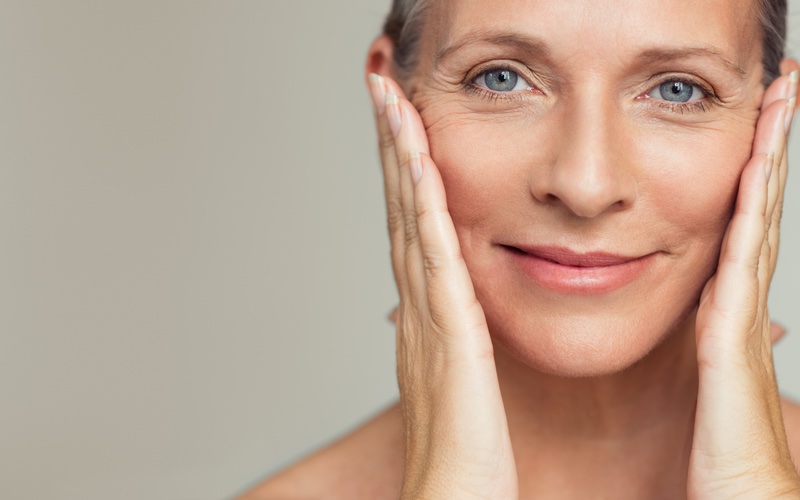
Inflammaging: How Inflammation Affects Aging
We've all experienced inflammation on our skin at one point or another. In general, inflammation is a sign that your body is working to protect you from injury and infection. For instance, if you bump your head and get a bruise or a goose egg, that's a sign that your body is working to heal. After a little while, your body returns to normal, and all indications that you sustained an injury are gone
Other kinds of inflammation, though, are considered chronic and have a more lasting impact on your skin. Chronic inflammation can result from life choices (including what you eat and how much sleep you get) or exposure to pollution, or UV damage. You may even notice increased inflammation in your body when you are stressed.
As you age, your body loses its ability to bounce back from these stressors, leading to a more lasting inflammatory response in your skin. This process is also called "inflammaging."

How Chronic Inflammation Impacts Aging
With chronic inflammation, your body spends so much energy trying to repair itself that your skin's natural defense systems start to weaken. This results in less collagen and elastin in your body, each of which keeps your skin looking young. You may also notice that your skin is dry, dull, or uneven in tone.
You may feel the effects of chronic inflammation in other ways, including increased fatigue,k digestive issues, a less effective immune system, restlessness, and stiffness or soreness in your joints. Chronic inflammation also increases your risk for heart disease, Parkinson’s, or Alzheimer’s, diseases typically associated with aging.
Simple Ways to Combat “Inflammaging”
The good news is that you can prevent or reduce the impact of inflammation, and therefore “inflammaging," on your body. Here are some simple lifestyle changes that can help:
Address Stress
When you are stressed, your body triggers your immune system to help you, similar to when you have a physical ailment. You can negate this response by taking action to support your mental health. Some standard techniques to lower stress include cutting back on workload, getting adequate sleep, and practicing mindfulness. You can also consider talking to a doctor or therapist to get advice on addressing and managing the stress in your life.
Improve Your Diet
You can help decrease inflammation in your body by paying attention to the food you eat. Rather than relying on processed meals, work to incorporate more produce (especially dark green vegetables) and foods high in omega-3s, like salmon. You can also incorporate spices like turmeric, which has natural anti-inflammatory qualities similar to ibuprofen.

Increase Exercise
When you move, your body releases endorphins. These hormones not only help improve your mood, but they also play a vital role in managing inflammation in your body. You don’t have to move much to feel the effect of these hormones — going on a walk, practicing yoga, or doing an activity like gardening can all increase the endorphins in your body.

Fight Inflammaging with Red Light Therapy From Light Lounge
Nobody is perfect. Maintaining the ideal exercise schedule and diet or managing stress is all challenging. Thankfully, those aren't the only tools available. Red light therapy is a safe, non-invasive way to treat inflammation in the body with no side effects. After hundreds of clinical trials and laboratory studies
on the impact of red light therapy, scientists have found red light therapy to be an effective treatment for acute and chronic inflammation. Because red light therapy addresses and reduces inflammation at its source, it is an effective anti-aging treatment. There is also promising research on using red light therapy to combat diseases such as Alzheimer's and Parkinson's. Learn more by contacting Light Lounge and book your first appointment free today!